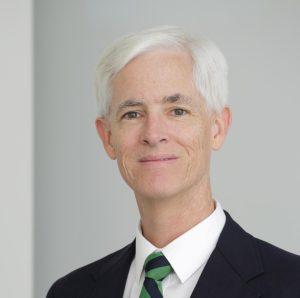
Credit: UTHSC
Memphis, Tenn. (January 26, 2021) -When Andrew Griffith, MD, PhD, looks at the inner ear, he sees what he describes as “an engineering marvel.”
Just think about it, he says, the inner ear is intricately designed to process sound, which can travel faster than the speed of nerve cell signaling in our body. Yet, when he began his research career as an otolaryngologist and a molecular biologist, not much was known about how the inner ear operates.
“We couldn’t use classical approaches to understand the organ,” he says. “We can’t actually biopsy the inner ear or take any tissue from a living person without completely deafening them and making them severely dizzy, essentially destroying the organ.”
Dr. Griffith and his collaborators spent more than a decade doing research to better understand the molecular basis of inner ear function. That research has earned him recognition from the Association for Research in Otolaryngology (ARO), which has awarded him with its 2021 Pioneer in Basic Science Award. The award will be presented at the organization’s virtual mid-winter meeting in February.
Dr. Griffith, who is now the senior associate dean of Research in the UTHSC College of Medicine, led the research team that collaborated with a variety of other teams to discover the TMC1 and TMC2 genes and their function in the inner ear. TMC1 and TMC2 encode ion channel proteins expressed in tiny hair-like cells in the inner ear. These “hair cells” are the body’s sensors of sound, as well as acceleration of the head, which is key to our sense of motion, gravity, and balance. Mutations of these genes disrupt this process and cause deafness. The work recognized by the award was published in a series of five research papers, all of which included key contributions from the laboratory of Dr. Griffith.
“These proteins were really the Holy Grail of our field,” Dr. Griffith says. “This is the fastest channel known to man. If we understand how this machine (the inner ear) works so fast, we expect science to get to the point where we will be developing proteins to do ultra-rapid molecular tasks.” Moreover, the research has led to work in multiple labs to develop gene therapy for the deafness caused by mutations in TMC1.
Also receiving the ARO Pioneer in Basic Science Award for 2021 are Dr. Griffith’s collaborators, Jeffrey Holt, PhD, professor of otolaryngology and neurology, and Gwenaelle Geleoc, PhD, assistant professor of otolaryngology. The husband-wife team were at the University of Virginia and are now at Harvard University.
“The identity of the transduction channels has both fundamental and translational importance for therapy for inner-ear genetic disorders,” the ARO wrote in announcing the awards. “This highly significant discovery is the direct product of a decade or more of innovative and virtuoso experiments that reflect scientific vision, acumen, and tenacity.”
Dr. Griffith joined the UTHSC College of Medicine last summer, after serving at the National Institutes of Health for 14 years, primarily in the National Institute on Deafness and Other Communication Disorders. Dr. Griffith has also been an adjunct professor of neuroscience and cognitive science at the University of Maryland, and an adjunct professor in the Department of Otolaryngology-Head and Neck Surgery at Johns Hopkins University School of Medicine.
A physician-scientist, Dr. Griffith says his goal at UTHSC is to grow the research enterprise in the College of Medicine in a way that enhances the research, education, clinical care, and community outreach missions of the university. “My vision overlaps into the area of training,” he says. “I would like to enhance the pipeline for physician-scientists at the middle school, undergraduate, graduate school, and faculty level.”
He also wants to increase the connection and collaboration among researchers across the campus and across the state. He points to the research being recognized by the ARO next month as an example of success achieved by a multidisciplinary team.
“I was a geneticist,” he says. “I collaborated with colleagues who were physiologists. Different skill sets bring different ideas.”
###
As Tennessee’s only public, statewide, academic health system, the mission of the University of Tennessee Health Science Center is to bring the benefits of the health sciences to the achievement and maintenance of human health through education, research, clinical care, and public service, with a focus on the citizens of Tennessee and the region. The main campus in Memphis includes six colleges: Dentistry, Graduate Health Sciences, Health Professions, Medicine, Nursing and Pharmacy. UTHSC also educates and trains medicine, pharmacy, and/or health professions students, as well as medical residents and fellows, at major sites in Knoxville, Chattanooga and Nashville. For more information, visit uthsc.edu. Find us on Facebook: facebook.com/uthsc, on Twitter: twitter.com/uthsc and on Instagram: instagram.com/uthsc.
Media Contact
Amber Carter
[email protected]




